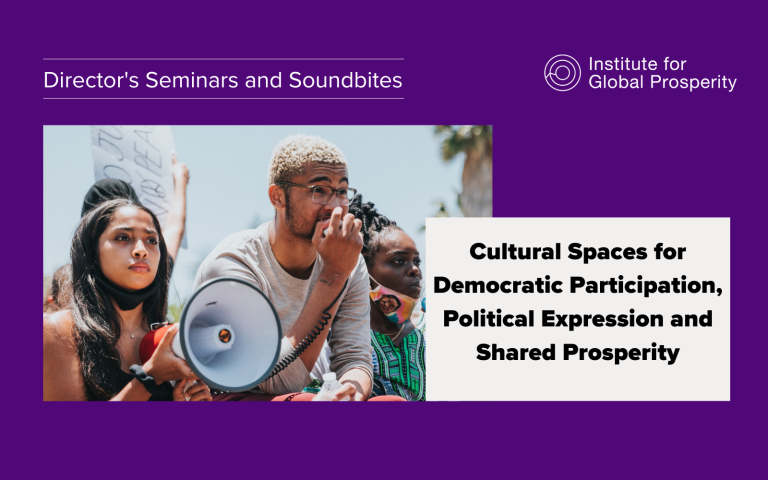How can we adapt our prosperity thinking for the challenges of the 21st Century?
05 October 2023, 4:30 pm–6:00 pm

Join us for a Director's Seminar to celebrate the launch of the new book 'Prosperity in the Twenty-First Century'.
Event Information
Open to
- All
Availability
- Yes
Organiser
-
UCL Institute for Global Prosperity
Location
-
Denys Holland Lecture Theatre, SB31Bentham HouseEndsleigh GardensLondonWC1H 0EG
For the first Director's Seminar of the academic year, UCL Institute for Global Prosperity is celebrating the publication of the second book in its ‘Global Prosperity Thought and Practice’ series.
Prosperity in the Twenty-First Century. Concepts, models and metrics sets out a new vision for prosperity in the twenty-first century and how it can be achieved for all.
The volume, which is freely available online, challenges orthodox understandings of economic models, but goes beyond contemporary debates to show how social innovation drives economic value. Drawing on substantive research in the UK, Lebanon and Kenya, it develops new concepts, frameworks, models and metrics for prosperity across a wide range of contexts, emphasising commonalities and differences. Its distinctive approach goes beyond defining and measuring prosperity – addressing the debate about the failures of GDP – to formulating and describing what is needed to make prosperity a realisable proposition for specific people living in specific locales.
Speakers at this event will include Professor Jo Beall (LSE), Dr Matthew Davies (University of Cambridge), Dr Marit Hammond (Keele University) and Dr Ruth Yeoman (Kellogg College, University of Oxford), and the event will be chaired by UCL Institute for Global Prosperity Director Professor Henrietta L. Moore.
Accessibility
An access guide to Bentham House can be found on AccessAble
About this event series
Cultural Spaces for Democratic Participation, Political Expression and Shared Prosperity
This Director’s Seminars and Soundbites series explores how citizens mobilize new physical and digital channels of political participation, and what can be done to create and adapt these cultural spaces so as they make positive impact on democratic life in the 21st Century.
 Close
Close

